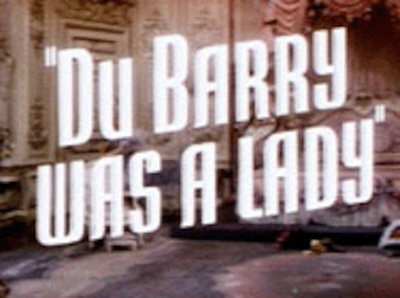Zero Mostel

About
Biography
Filmography
Family & Companions
Bibliography
Biography
This volatile, stage-trained comic actor made his film debut playing dual roles in "Du Barry Was a Lady" (1943). Mostel's solid, bulky build and heavy-lidded eyes made him a convincing heavy, but his promising film career (e.g., "Panic in the Streets" 1950) was cut short when he was blacklisted following his testimony before the House Un-American Activities Committee in 1951. His fortunes revived in the early 1960s with his maniacally comic Broadway performance in "A Funny Thing Happened on the Way to the Forum" (1962) and, as Tevye, in "Fiddler on the Roof" (1964). Mostel turned in a landmark screen performance as bamboozling Broadway producer Max Bialystock in Mel Brooks' "The Producers" (1967), and continued making regular film appearances into the late 1970s. One of his most notable later roles was in the Martin Ritt drama, "The Front" (1976), as a man facing the blacklist.
Filmography
Cast (Feature Film)
Film Production - Main (Feature Film)
Misc. Crew (Feature Film)
Cast (Special)
Cast (TV Mini-Series)
Life Events
1937
Hired by the Federal Arts Program to teach drawing and painting
1942
Debut as a stand-up comic at Cafe Society in NYC; given nickname 'Zero' by club's press agent because he was "a guy starting from nothing"
1942
Broadway debut in the revue "Keep 'Em Laughing"
1943
Briefly served in the US Army
1943
Feature film debut in "DuBarry Was a Lady"
1946
Appeared in the stage musical "Beggar's Holiday"
1948
Performed regularly on "Off the Record" (DuMont)
1949
Acted alongside wife Kate in two Moliere plays, "The Imaginary Invalid" and "The Doctor in Spite of Himself", at the Brattle Theater in Cambridge, Massachusetts
1950
Had featured role in "Panic in the Streets", helmed by Elia Kazan
1951
Called to testify before the House Committee on UnAmerican Activities; was blacklisted
1952
Reteamed with Kazan for the stage drama "Flight into Egypt"
1952
Last film for nearly a decade, "The Model and the Marriage Broker"
1958
Made stage comeback in "Ulysses in Nighttown", directed by Burgess Meredith
1959
Appeared in "The World of Sholom Aleichem" (syndicated)
1960
Severely injured left leg when he was struck by a bus (January)
1960
Acted in "Zero", adapted from a Samuel Beckett play; screened at Venice Film Festival but never released theatrically in the USA
1961
Returned to Broadway after long recovery to star in Ionesco's "Rhinoceros"; received Tony Award
1962
Enjoyed hit as the star of the vaudeville-like musical "A Funny Thing Happened on the Way to the Forum"; received second Tony Award
1963
Headlined one-person special "Zero Mostel"
1964
Delivered a well-received stage turn as Tevye the milkman in the musical "Fiddler on the Roof", adapted from the stories of Sholom Aleichem; production directed by Jerome Robbins; garnered third career Tony Award
1966
Recreated his stage role as Pseudolus in the film adaptation of "A Funny Thing Happened on the Way to the Forum"
1967
Starred in the variety program "Zero Hour" (ABC)
1968
Offered what is perhaps his best recalled film performance as outsized impresario Max Bialystock in "The Producers"
1970
Co-starred in "The Angel Levine"
1972
Acted in the caper comedy "The Hot Rock"
1974
Recreated another stage role in the film adaptation of "Rhinoceros"
1974
Final Broadway appearance recreating role of Leopold Bloom in "Ulysses in Nighttown"; earned Tony nomination
1976
Appeared alongside Woody Allen in "The Front", about the Hollywood blacklist, scripted by Walter Bernstein and directed by Martin Ritt
1977
Last TV appearance, a guest spot on the syndicated series "The Muppet Show"
1977
Final stage performance as Shylock in "The Merchant", Arnold Wesker's reworking of Shakespeare's "The Merchant of Venice"
1978
Heard posthumously as the voice of Kehaar the seagull in the animated film "Watership Down"
1979
Seen in footage of the documentary "Best Boy"
Photo Collections
Videos
Movie Clip












Trailer






Family
Companions












